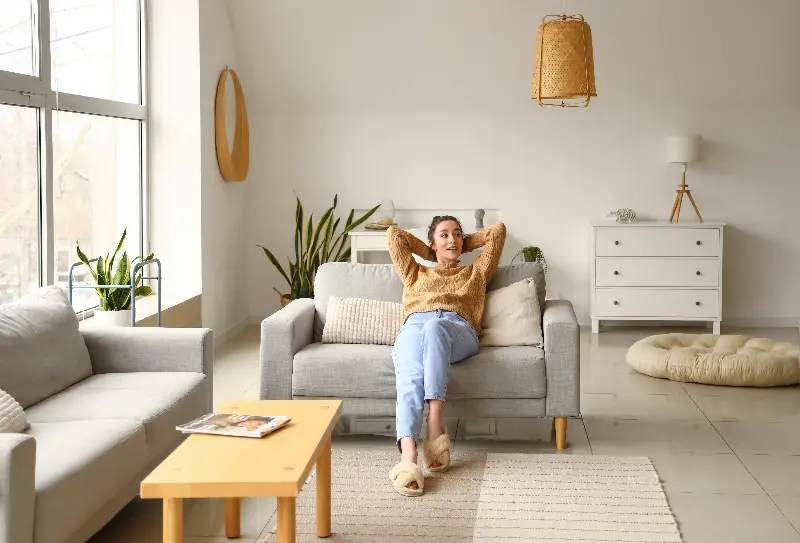Sometimes, life can feel like a whirlwind of obligations, endless to-do lists and responsibilities pulling us in all directions. While the chase for balance, joy and productivity may seem elusive, the secret lies in reorganising and transforming your life with intention. Imagine a daily rhythm where your personal and professional priorities align, stress is managed, and your days end with a genuine sense of achievement and happiness. Here are three powerful ways to help you reclaim control, infuse more joy and optimise your productivity – all while creating space for what matters most.
Prioritise With Purpose: Design Your Day Around What Truly Matters

Modern life often urges us to multitask, say “yes” more than we should, and juggle countless tasks. But genuine transformation and balance begin with deliberate prioritisation. The key is to identify what truly matters and focus your energy there. Begin by listing out your personal and professional roles, then rank your responsibilities based on their impact on your happiness, relationships and goals.
It may sound simple, but purposeful prioritisation can act like a compass, guiding your decision-making each day. Try adopting the “rule of three”: at the start of your day, select just three essential tasks that will have the most significant positive impact on your goals or well-being. Completing these top tasks before moving on to less important ones can instil a sense of progress and keep you motivated. Remember to include one activity that brings you joy, whether it’s a phone call with a friend, a walk in nature or a few quiet moments with a book.
In fact, neuroscientists suggest that focusing on fewer, truly important tasks reduces mental fatigue and boosts satisfaction. As businesswoman Arianna Huffington notes: “You can complete a hundred things in a day and still feel unproductive if those things are not meaningful.” Purposeful prioritisation is about more than to-do lists – it’s about living your days with intention and clarity.
Declutter Your Environment And Mind: Clear Space, Gain Perspective

There is something undeniably soothing about walking into a tidy, organised space. Physical clutter can unconsciously drain your mental energy, creating a low-grade sense of chaos and unease. Meanwhile, research shows that people working in organised environments are more likely to eat healthily, be productive and sleep better.
Start by identifying one area to declutter each week, such as your workspace, bedroom or digital files on your laptop. Remove items that no longer serve a purpose or bring joy. Give everything a dedicated “home,” whether it’s a labelled box, a neat drawer or an organised folder on your computer. Apply the same principle to your digital life by clearing email inboxes, deleting unused apps and organising photos.
However, decluttering isn’t just about physical space – it’s equally important to free your mind from unnecessary mental clutter. Mindfulness and journaling are powerful tools to help you do this. Take a few minutes each day to jot down worries, lingering tasks or random thoughts. This brain “download” helps prevent overwhelm and illuminates what truly needs your attention. Plus, carving out mental space often leads to greater creativity and sharper decision-making.
Regularly decluttering both your physical and mental environments cultivates a sense of calm. It sends a positive signal to your brain: only things and thoughts that serve you are welcome. This clarity is the foundation for building balance and bringing more conscious joy into everyday routines.
Embrace Rhythms Over Rigid Routines: Find Flow For Fun And Focus
Life isn’t meant to be lived in rigid blocks, but rather in rhythms that ebb and flow with your energy, needs and aspirations. While routines grant predictability, embracing natural rhythms brings flexibility, adaptability and more space for happiness and spontaneity.
Our bodies and minds function best in cycles – think of the circadian rhythm that guides your sleep and wakefulness, or the “ultradian rhythm,” which suggests we function best when working in focused 90-minute intervals followed by short breaks. Instead of scheduling your day in relentless, back-to-back hours, try tuning in to your natural peaks and dips in energy. Reserve high-focus tasks for your “prime” hours, and use lower-energy periods for lighter activities or short walks.
You can create daily or weekly “rituals” that add structure without being abrasive. For instance, a Sunday evening ritual could include planning the week ahead, preparing meals or simply enjoying a favourite film. Mornings can include ten mindful breaths before reaching for your phone, while evenings might end with gratitude journaling. These small but meaningful rituals foster a sense of consistency, security and well-being.
Interestingly, studies show that people who align their work and rest with their natural energy cycles are less likely to feel burned out and more likely to experience what positive psychologists call “flow” – that blissful state where time melts away, and productivity and joy intersect. Allowing for both discipline and flexibility ensures that your days bring not just results, but also delight and balance.
Reorganising your life doesn’t demand dramatic changes overnight. By prioritising with purpose, clearing both your physical and mental space, and embracing rhythms that work for you, you’ll find yourself equipped with powerful tools to transform your days. The journey to balance, joy and productivity is deeply personal – and it often begins with just one small, intentional step.
